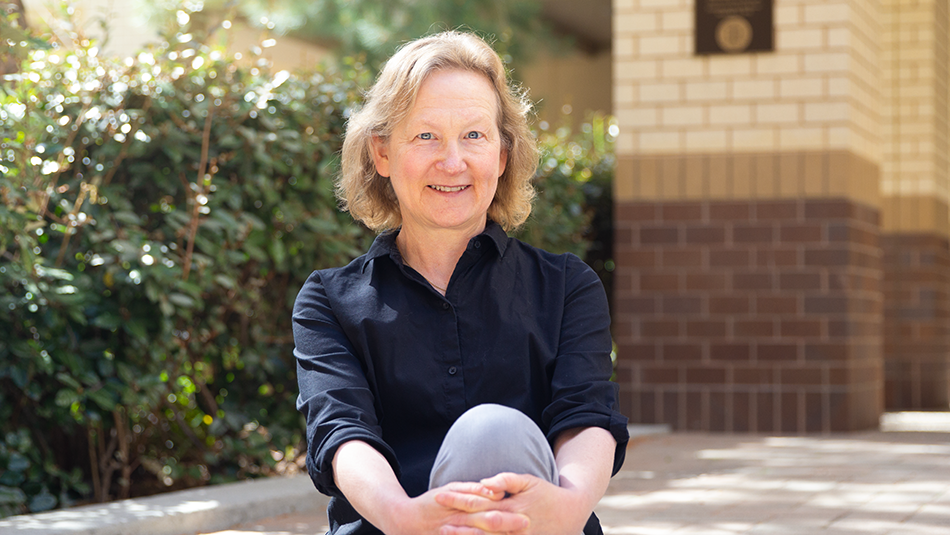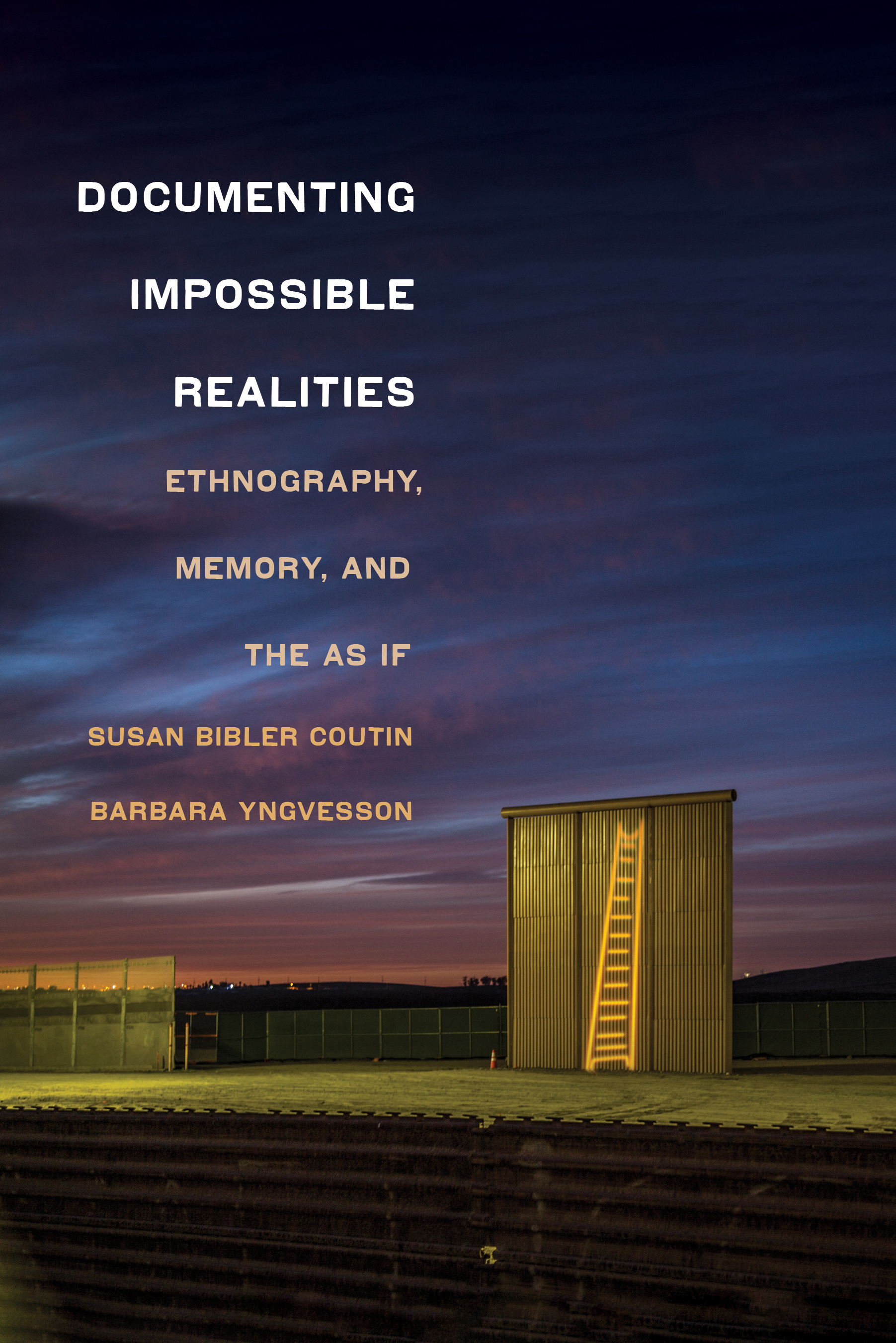
Susan Bibler Coutin’s latest book documents “impossible realities.”
New book examines the complexities of belonging
The conventions that shape belonging are complex, and can position people simultaneously as insiders and outsiders, present yet absent, leading to sometimes agonizing contradictions. Susan Bibler Coutin and her co-author Barbara Yngvesson explore such experiences in their recent book, Documenting Impossible Realities: Ethnography, Memory, and the As If.
Coutin, a UC Irvine professor of criminology, law and society and anthropology — as well as School of Social Ecology associate dean of academic programs — and Yngvesson, professor emerita of anthropology at Hampshire College in Massachusetts, draw on one another’s previous work. For Coutin, whose previous books include Exiled Home, Nations of Emigrants and Legalizing Moves, it’s people who have immigrated or been deported. For Yngvesson, whose titles include Virtuous Citizens, Disruptive Subjects and Belonging in an Adopted World, it’s transnational adoptees.
“There are increasing circumstances where people are put in what we describe in the book as ‘impossible realities,’ ” Coutin says. “It’s where you are a member of two countries or two families at the same time, but also in some ways a member of neither. In the book, we take up immigration, transnational adoption, and situations where people are exiled or where there is political violence, and they are forcibly pushed out of a particular society.”
For instance, Carlos is a Deferred Action for Childhood Arrivals (DACA) applicant. Despite living in the United States since elementary school, he found it difficult to prove that he had been here continuously. Likewise, Maria, who was born in Chile and adopted by a Swedish family, felt “somewhere in between both countries.”
Making it clear that not everyone who has experienced situations like Carlos, Maria and others depicted by the book feel the same way, Coutin suggests that dislocation is so widespread that Documenting Impossible Realities should resonate — especially as the pressures that lead to immigration, deportation, forced displacement, political exile and transnational adoptions have intensified.
“We have students attending UC Irvine right now who have gone through similar situations,” Coutin says. “Their families had to flee a country, and they are now here. Or, we have students who are the first person in their family to go to college, which is a wonderful experience, but it can also be alienating in various ways.”
One concept the book addresses is “entanglement,” where people’s lives and circumstances are intertwined, despite distance.
“All too often, societal conventions draw these boundaries and say, ‘You don’t belong,’ or ‘Your reality is not valid.’ It’s happening increasingly, and I would argue it is both unsustainable and politically perilous,” Coutin says. “I would hope that our book has done something to illuminate experiences of dislocation, and ways that people have more in common with each other than they think, which goes back to that notion of entanglement.”
Yngvesson was book review editor at the Law and Society Review in the 1990s when she reached out to Coutin, who at the time was an assistant professor in Massachusetts, to write a review essay. “We corresponded regarding that review,” Coutin recalls. “I was a junior scholar at that time, so it was really wonderful to be engaged with her around that.”
The correspondence continued after Coutin’s essays were published, with their respective research projects being among the topics of discussion. The junior scholar noted that countries like Mexico had begun allowing citizens who migrated elsewhere to maintain dual nationalities and Yngvesson wrote a paper about open adoptions, where children have relationships with their adopted and birth families.
“I thought, that’s a really interesting parallel,” Coutin says of the pair’s research tracks. She mentioned that to Yngvesson, and that led to collaborative research, including their 2002 paper “In the mirror: the legitimation work of globalization” that was co-authored with Bill Mauer, UCI professor of anthropology dean of the School of Social Sciences. It was published in the journal Law and Social Inquiry.
“We were really intrigued by the idea of pushing our analysis further and thinking not only about the commonalities across the situations that we were studying but also ethnography as a practice and what kind of insights it affords,” Coutin says of her research with Yngvesson. “We decided to see where our collaboration took us basically. It was a sort of openness to exploring what emerges when you juxtapose situations.”
That eventually led to Documenting Impossible Realities, although Coutin confesses the co-authors started “without a specific detailed plan as to what form it was going to take. We developed that over time, and it was an exciting process for me.”
The co-authors hope their book will open eyes to the impossible realities many people experience.
“The one thing Barbara and I don’t want to say is that the people we wrote about are the only people who experience these processes,” she said. “On the contrary, if you think about it, many families have all kinds of arrangements. There are so many different situations out there, and there are more commonalities than we think.
“We really hope that the book is a living document. We keep encountering things like a museum exhibit or a news story that relates to the book. And likewise, we hope that readers consider how their experiences might be in conversation with what we’re writing about.”
— Matt Coker